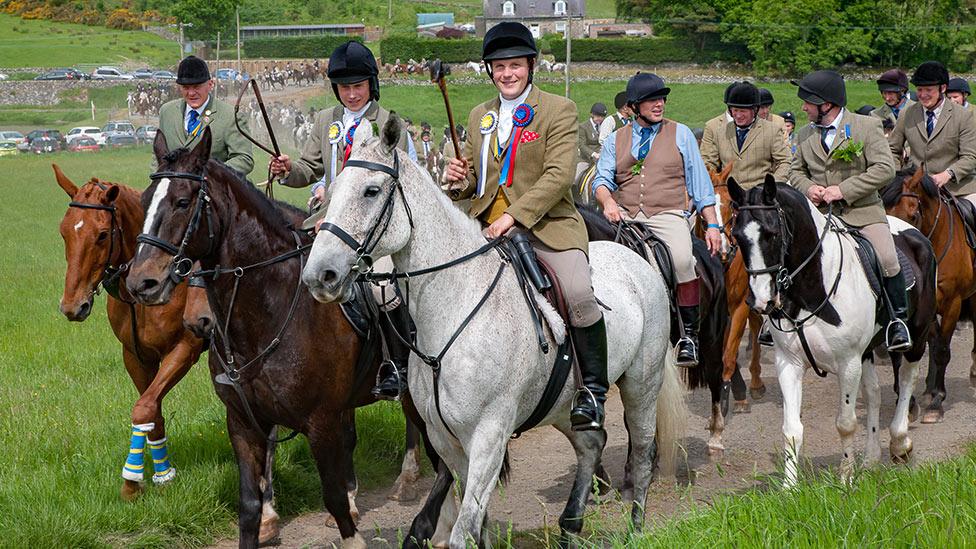Coronavirus in Scotland: Hawick Common Riding goes online
- Published

Hawick traditionally opens the common riding season in the Borders
The town which traditionally kicks off the common riding season in the Borders has taken some of its events online.
A number of places across the region normally see residents take to horseback each year to mark historic boundaries and celebrate the summer.
Hawick usually gets proceedings under way but is now staging a virtual version of its festivities instead.
Three online concerts are planned in order to ensure the annual event can go ahead during the coronavirus outbreak.

Ben McCredie said it was a great honour to be part of the virtual event
John Hogg, common riding chairman, said: "Nothing can replace our common riding celebrations, but the common riding committee felt compelled to mark our common riding nonetheless in a safe and appropriate manner."
The programme will see three key events in the build-up to the big day next Friday marked with online concerts.
"You'll hear songs from the wealth of talent we are so lucky to call our own, both young and not so young alike," said Mr Hogg.
"There will also be guest appearances from local dignitaries and a host of other events."

Cornet Connor Brunton and his Lass Victoria Campbell will lead the unusual celebration
He paid tribute to the work of Ronald Yule who had "worked tirelessly" to help put the content online.
Among those featuring in the virtual celebrations is 16-year-old Ben McCredie.
"It's always a great honour to take part in the common riding and this year is certainly different, but I was delighted to be asked to take part in the virtual concert," he said.
Niamh Scott, 17, is performing in one of the concerts as well.
She said it was a "great pleasure" to be asked to take part.
"It's great that we still get to look forward to something in these difficult times, even if it's not how we would normally celebrate our common riding," she said.

Niamh Scott is taking part in one of the online concerts this year
Hawick provost Watson McAteer added: "The coronavirus has taken a terrible toll on our community, but it will not stop us remembering and celebrating our rich history."
The town's common riding celebrates the capture of an English flag in 1514 by the youth of Hawick at a place called Hornshole.
It also continues the custom of riding the marches or boundaries of the common land.